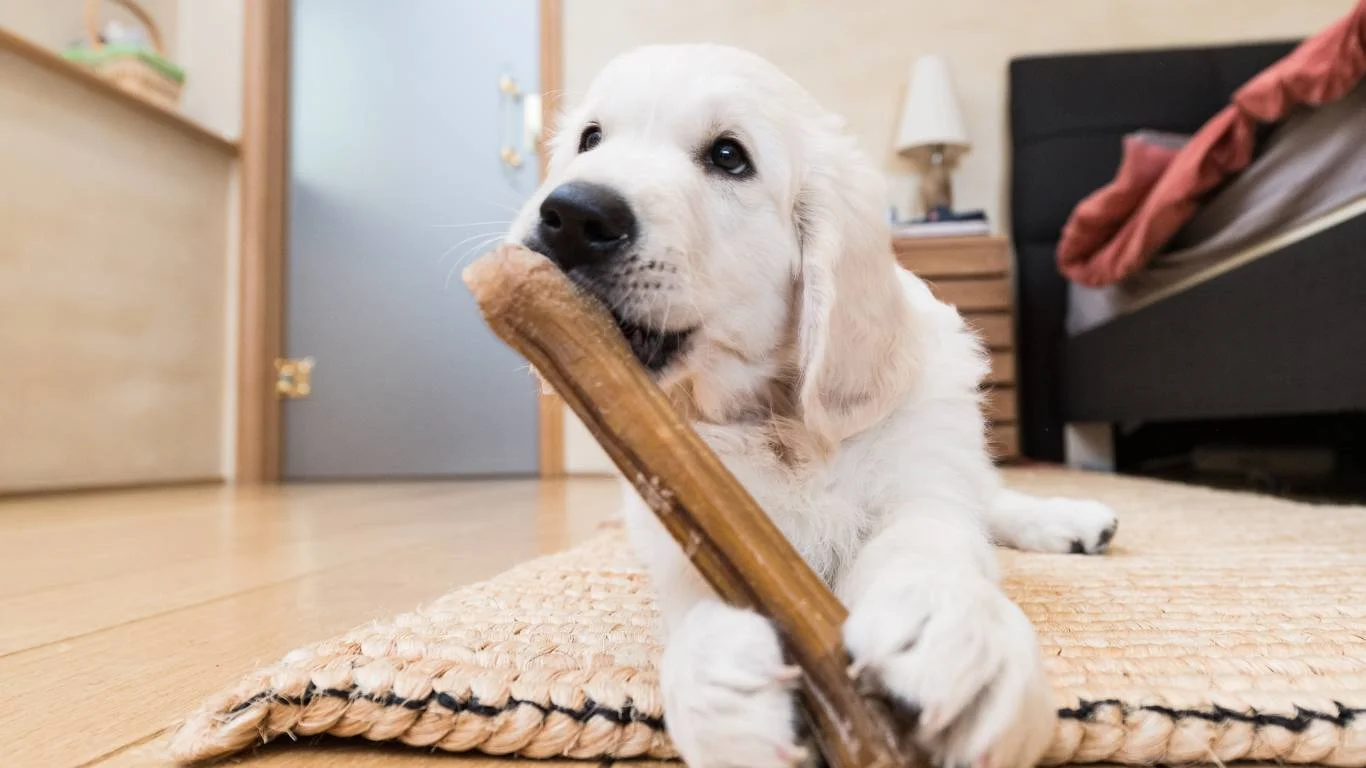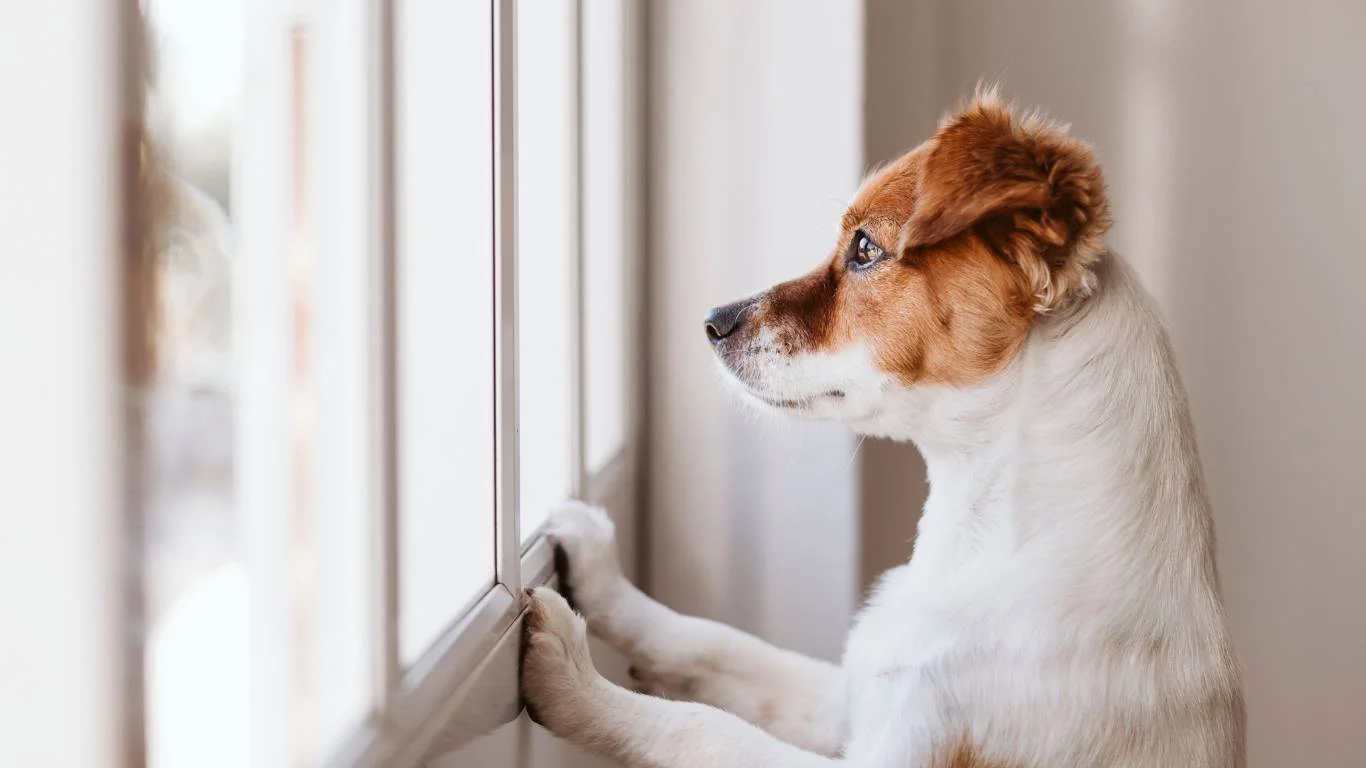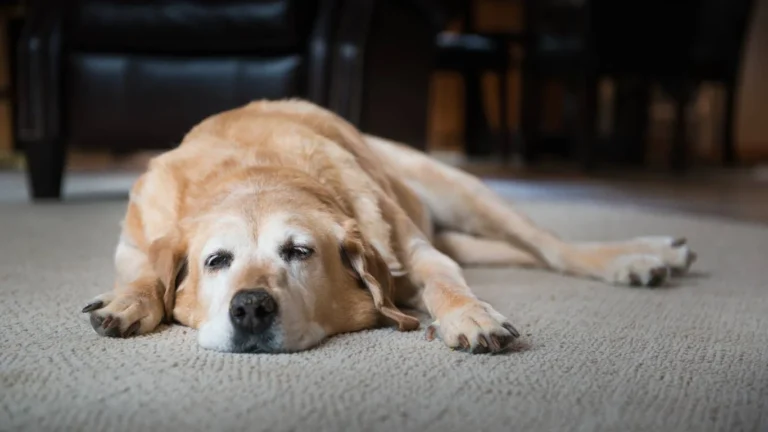Powerful Reasons Why Your Dog Is Pacing and Whining at Night
Ever found yourself asking, why is my dog pacing and whining at night? Yeah, I’ve been there—more times than I’d like to admit. As someone who’s spent years working as a Veterinary Assistant with a special focus on nutrition, I can tell you this: nighttime restlessness in dogs is more common than most pet parents realize. It’s not just frustrating—it can be heartbreaking watching your pup seem so anxious or uncomfortable while the rest of the house is winding down for the night. So let’s unpack what could really be going on here.
Common Reasons Dogs Pace and Whine at Night

1. Anxiety or Stress
This is one of the top reasons I’ve seen dogs exhibit nighttime restlessness. Whether it’s separation anxiety, fear of loud noises, or even a change in their environment, dogs are super sensitive to emotional changes. I remember a sweet Labrador named Daisy at our clinic—she started pacing every night after her family moved to a new home. All it took was a familiar-scented blanket and a bit of routine to ease her nerves.
Pro Tip: Try calming supplements or a pheromone diffuser. They work wonders in some cases, and I’ve seen plenty of clients swear by them.
2. Medical Discomfort or Pain
If your dog’s behavior is out of the blue, don’t rule out pain. Dogs are masters at hiding discomfort during the day, but at night, when everything’s quiet, that pain becomes harder to ignore. Joint pain, digestive upset, or even something as simple as bloating could have your dog whining and pacing.
- Arthritis or hip dysplasia
- Upset stomach from food sensitivities
- Urinary tract infections (they’re more common than you think!)
In my experience, dogs with early signs of arthritis often start pacing more when it gets chilly at night. If your dog’s on the older side, this could be a huge clue. Don’t wait—have your vet check them out.
Is It a Behavioral Issue or Something More?

3. Lack of Mental or Physical Stimulation
Let’s face it—bored dogs = restless dogs. I used to see this a lot with younger, high-energy breeds. If a dog hasn’t burned off their energy, it can build up and show up as pacing or whining, especially at night when they have no outlet.
Think of it like this: if your dog’s been napping all day while you’re at work, they’re not going to be ready to crash the moment you do. A short walk might not cut it—some dogs really need a good mental challenge or more playtime before bed.
- Interactive toys or treat puzzles
- Evening walks with sniff breaks (yes, those matter!)
- Basic training exercises—great mental workout!
4. Hunger or Digestive Discomfort
Here’s where my nutrition background really comes into play. Some dogs can’t handle going 12+ hours without food. Low blood sugar can make them feel off, and gastrointestinal discomfort can build up if their last meal was too rich, too fatty, or simply not sitting right.
I’ve had clients come in saying, “My dog seems perfectly fine during the day, but she gets antsy and whines for no reason at night.” Sometimes, it was as simple as adjusting feeding times or switching to a food that’s easier to digest.
Things to consider:
- Try splitting meals into three portions instead of two
- A bedtime snack (like plain pumpkin or a dental chew) can sometimes help
- Look for signs of food allergies or sensitivities
When Should You Worry?

5. Signs That Warrant a Vet Visit
Here’s the deal: not every case of nighttime whining or pacing is serious, but some definitely are. If you notice any of the following, don’t wait—schedule a vet checkup:
- Whining paired with limping, panting, or shaking
- Sudden increase in nighttime restlessness
- Changes in appetite, stool, or urination patterns
- Confusion or disorientation (especially in senior dogs)
As a vet assistant, I’ve seen dogs with underlying issues like canine cognitive dysfunction or early signs of kidney problems get diagnosed after this kind of behavior popped up. Trust your gut. You know your dog best, and if something feels off—it probably is.
Could It Be Age-Related? Understanding Senior Dog Behavior at Night

6. Cognitive Dysfunction Syndrome (CDS)
If your dog’s been pacing and whining at night and they’re getting up there in years, you might be looking at something called Canine Cognitive Dysfunction—kind of like doggy dementia. It’s heartbreaking, honestly. I remember working with a senior Sheltie named Max—he used to get up multiple times a night, pacing in circles and staring at walls. His family thought it was anxiety, but it turned out to be CDS.
Here are some common signs of CDS:
- Disorientation (getting “stuck” in corners)
- Changes in sleep-wake cycle
- Loss of house-training
- Decreased interaction with family
The good news? There are some great supplements and prescription diets out there that support brain health. I’ve seen dogs improve noticeably just by adding omega-3s or switching to a senior-formula food with added antioxidants. Don’t underestimate the power of nutrition—that’s where my heart lies in all of this.
7. Poor Vision or Hearing
This one’s easy to miss but surprisingly common. If your dog’s whining at night, especially in low light, consider if they might not be seeing or hearing as well as they used to. Shadows, reflections, or sudden sounds can feel disorienting or even scary. One of my clients had a senior Pug who started whining every night after sundown. We figured out it was due to poor night vision—just leaving on a soft nightlight made a huge difference.
Small fixes like that can be game changers. Also, speak gently and use touch to reassure them if their hearing is fading. It makes a world of difference for their sense of safety.
Why Is My Dog Pacing and Whining at Night? The Nutrition Connection

8. Blood Sugar Drops and Digestive Imbalance
Let’s circle back to something I see more often than you’d think—dogs reacting to what (or when) they eat. Why is my dog pacing and whining at night? Well, sometimes it boils down to blood sugar dips or digestive imbalance. Small dogs and active breeds especially can be prone to hypoglycemia if meals are spaced too far apart.
Here’s what I usually recommend to clients:
- Feed dinner a little later in the evening
- Offer a bedtime snack—low fat, easy to digest
- Stick to a consistent feeding schedule
And it’s not just when they eat—what they eat matters too. Fillers, too much fat, or sudden diet changes can leave dogs gassy, bloated, or uncomfortable come bedtime. I’ve seen dogs stop pacing at night just by switching to a limited ingredient diet or adding probiotics. Sometimes, it’s the little tweaks that do the trick.
9. Food Allergies or Intolerances
Food sensitivities can sneak up on you. Just because a dog’s been fine on a diet for months doesn’t mean their body won’t suddenly start reacting. I once worked with a Boxer who started pacing at night like clockwork. Turned out, he had developed a chicken allergy—who would’ve guessed? After switching to a fish-based formula, he was back to sleeping soundly in no time.
Watch for these subtle signs of intolerance:
- Intermittent diarrhea or soft stool
- Itchy paws or ears
- Excessive licking or chewing
If any of that sounds familiar, it might be worth talking to your vet about an elimination diet. It’s a bit of a process, but it’s so worth it when your dog finally finds relief—and so do you.
How Your Routine Impacts Their Nighttime Behavior

10. Too Much Stimulus Before Bed
Ever tried to fall asleep right after scrolling your phone or watching a suspenseful movie? Dogs are the same way—if they’re overstimulated in the evening, it’s no wonder they can’t settle. I’ve seen families do playtime right before bed and wonder why their dog is still wired an hour later.
Instead, aim for calm activities as bedtime approaches:
- Gentle brushing or massage
- Chewing a long-lasting treat (great for calming)
- A quiet walk or just lounging with you on the couch
Routine is everything. Dogs thrive on structure, and even shifting bedtime by an hour can throw them off. Try winding things down the same way each night—same time, same cues, same spot to sleep.
11. No Safe Sleeping Space
Think about your dog’s sleeping setup. Is it cozy, quiet, and away from drafts? Is it too bright or too noisy? One pup I worked with—Riley, a skittish little terrier—would pace until 2 AM every night until his owner moved his bed from near the front door to a quieter room. Boom. Peaceful nights restored.
Dogs are den animals at heart. Giving them a space that feels secure can instantly reduce nighttime anxiety. Crate-trained pups often feel safest in their crate with a blanket and maybe even a shirt that smells like you.
What to Do Tonight: Practical Steps for a Peaceful Sleep

12. Create a Wind-Down Routine
Just like kids need bedtime routines, so do our pups. I can’t tell you how many dog parents I’ve helped by simply introducing a calming nighttime structure. In my own home, I always dim the lights about an hour before bedtime, put on some gentle music, and give my dog a little massage with lavender-scented paw balm. Sounds over-the-top? Maybe. But it works like a charm.
Try setting up your own nightly checklist:
- Last potty break – no skipping!
- Turn off loud TV or music
- Offer a calming treat or chew
- Guide your dog to their sleeping area
Even dogs who’ve struggled with pacing and whining for weeks often settle down once the routine becomes predictable. It builds confidence and a sense of safety—which is half the battle.
13. Use Natural Calming Aids (If Needed)
When routines aren’t quite enough, there are some gentle, vet-approved supplements that can take the edge off without knocking your dog out. I’ve seen solid results using:
- Melatonin (talk to your vet for correct dosage)
- Chamomile-based treats
- L-theanine and calming chews (non-drowsy options)
- CBD (only high-quality, vet-recommended products)
One of my clients, a high-strung Border Collie named Lexi, responded super well to a combo of calming treats and a white noise machine. It wasn’t instant, but after a week, the pacing stopped entirely.
Helping Dogs with Separation Anxiety Sleep Better

14. Addressing Attachment-Based Night Whining
If your dog only paces or whines when you’re out of the room—or even in another part of the house—you’re likely dealing with some level of separation anxiety. I totally get it. Some dogs are just wired to be closer to their humans, and nighttime can exaggerate that feeling of distance.
For those pups, consider:
- Placing their bed in your room (or close by)
- Using a worn t-shirt in their bedding
- Gradual independence training in the evenings
At the clinic, we often suggested a transition phase—letting the dog sleep on a bed next to yours, then slowly moving it toward their designated sleep spot. It’s not about “spoiling” them—it’s about helping them feel safe.
15. Interactive Toys & Mental Workouts Before Bed
Brain tired = dog tired. And trust me, there’s a difference between physical exhaustion and mental stimulation. Especially for working breeds or intelligent dogs, nighttime restlessness is often a sign of boredom. We used to tell clients, “10 minutes of puzzle toy time can do more than 30 minutes of fetch.” And it’s true.
Try these ideas:
- KONG filled with frozen pumpkin or yogurt
- Snuffle mats or food puzzles
- Hide-and-seek with treats in different rooms
Adding these little brain teasers into your evening routine might just be the key to winding your pup down—and keeping them asleep.
Final Thoughts: Don’t Ignore the Signs
It might be tempting to chalk up your dog’s pacing and whining at night as “just being annoying,” but more often than not, it’s their way of telling you something’s not right. Whether it’s anxiety, hunger, pain, or confusion, dogs don’t whine for nothing. I always remind my clients—behavior is communication. And as their humans, it’s our job to listen.
Even small changes can bring big relief. I’ve seen dozens of pups go from restless roamers to bedtime champions with just a few simple adjustments. Don’t be afraid to trial a few strategies and, most importantly, loop your vet in if the issue persists. Trust your gut. You know your dog better than anyone.
References
- American Gastroenterological Association
- American Veterinary Medical Association
- American Kennel Club
- ASPCA
Disclaimer
This article is for informational purposes only and does not replace professional veterinary advice. If your dog is experiencing persistent nighttime pacing, whining, or unusual behavior, please consult your veterinarian for a full evaluation and tailored treatment plan.





